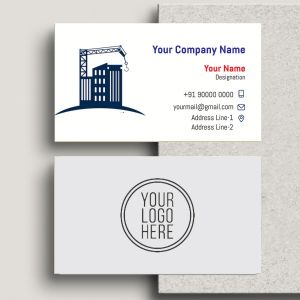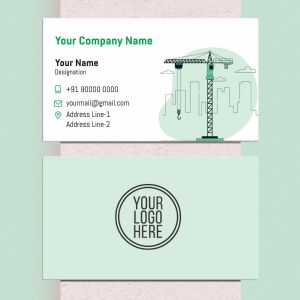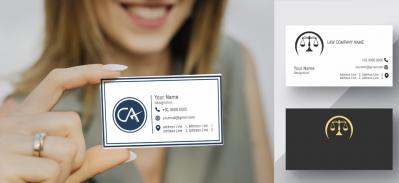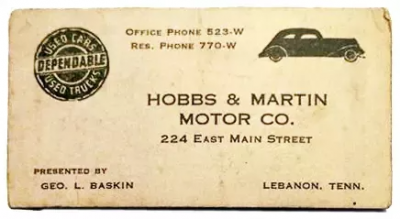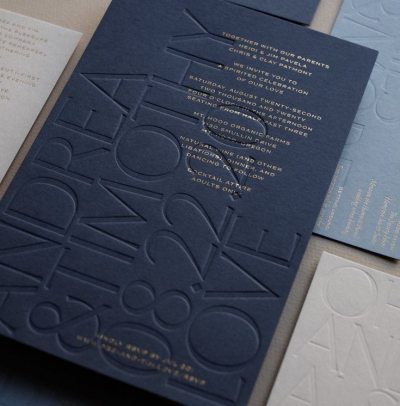Sustainable and Eco-friendly Options for Construction Business Cards
The construction industry, known for building the world around us, is evolving to embrace sustainability and environmental responsibility. More construction businesses are recognizing the importance of sustainable practices, not only in their projects but also in their day-to-day operations. One way to showcase your commitment to eco-friendliness and sustainability is through your business cards. In this blog, we'll explore sustainable and eco-friendly options for construction business cards that align with your green values and set a positive example for your clients and peers.
Why Choose Sustainable Construction Business Cards?
Sustainable construction business cards are not only environmentally responsible but also a reflection of your commitment to green practices. Here are a few reasons to consider them:
- Environmental Impact: Traditional business cards are often produced using resource-intensive processes and materials. Sustainable options help reduce your environmental footprint.
- Brand Image: Using eco-friendly business cards demonstrates your company's values and commitment to sustainability, which can enhance your brand image.
- Client Impressions: Sustainable business cards can make a positive impression on environmentally conscious clients and partners.
- Differentiation: In a competitive industry, choosing eco-friendly options sets you apart and can be a unique selling point.
- Cost Savings: While some sustainable options may have an upfront cost, they can be cost-effective in the long run, especially if you choose to print in smaller quantities or opt for digital options.
Now, let's explore sustainable and eco-friendly options for construction business cards.
1. Recycled Paper
Recycled paper is a popular and readily available eco-friendly option for business cards. It's made from post-consumer waste, reducing the demand for new trees and energy-intensive paper production processes. When choosing recycled paper, look for options with high post-consumer content.
2. Soy-Based Inks
Traditional inks often contain harmful chemicals and volatile organic compounds (VOCs). Soy-based inks, on the other hand, are a sustainable and eco-friendly alternative. They are made from renewable soybeans and produce fewer emissions when printed. These inks are also easier to remove during the recycling process.
3. Plantable Business Cards
Plantable business cards are an innovative and sustainable option. These cards are embedded with seeds, often wildflowers or herbs, and can be planted after use. When the card breaks down, it nourishes the soil and promotes plant growth, leaving a positive impact on the environment.
4. Bamboo Business Cards
Bamboo is a highly sustainable material. It's fast-growing and requires minimal water and pesticides to grow. Bamboo business cards are durable, unique, and have a distinctive grain pattern that makes them stand out.
5. Recycled Plastic Cards
Recycled plastic business cards are an alternative to paper-based cards. They are made from recycled plastics, such as PVC or PET, and can be recycled again after use. These cards are waterproof and more durable than traditional paper cards.
6. Cotton Business Cards
Cotton business cards are made from reclaimed cotton fabric or textile waste. This sustainable material is soft to the touch and can be recycled after use. The cards have a unique texture and feel that sets them apart.
7. FSC-Certified Paper
The Forest Stewardship Council (FSC) certifies paper products that meet specific environmental and social responsibility standards. The FSC-certified paper ensures that the materials used come from responsibly managed forests, reducing the environmental impact of paper production.
8. Water-Based Coatings
Traditional business cards often use UV coatings, which can contain harmful chemicals. Water-based coatings are a more environmentally friendly option. They are low in VOCs and offer a clear and protective finish for your cards.
9. Digital Business Cards
In the digital age, physical business cards are not always necessary. Digital business cards can be created and shared via smartphones, saving paper and resources. They can include interactive elements like QR codes and links to your website and social media profiles.
10. Reusable Business Cards
For a unique twist on sustainability, consider reusable business cards. These cards can be made from materials like metal or wood and include etched or engraved contact information. They are meant to be kept and used by recipients, eliminating the need for disposable cards.
Design Tips for Sustainable Construction Business Cards
- Clear and Concise Information: Use efficient and minimalist designs to maximize space and reduce waste.
- Double-Sided Printing: Utilize both sides of the card to provide additional information, such as your company's sustainable practices or certifications.
- Green Imagery: Use images or graphics that convey your commitment to eco-friendliness and sustainability.
- Font Choice: Select legible fonts that reduce the need for ink and avoid excessively bold or large text.
- QR Codes: Include a QR code that directs recipients to your online portfolio or more detailed information. This reduces the need for additional text on the card.
- Color Selection: Opt for lighter, more eco-friendly colors to reduce the environmental impact of ink production.
- Logo and Certification Display: Showcase your company's certifications and sustainable practices on the card to highlight your commitment to green values.
Conclusion
Sustainable and eco-friendly options for construction business cards are not only environmentally responsible but also a powerful way to communicate your company's commitment to green practices. These cards can make a positive impression on clients and partners who value sustainability and can set you apart in a competitive industry. By choosing sustainable materials and design options, you can leave a positive impact on the environment and showcase your dedication to a greener future in the construction industry. Make the right choice, not only for your business but for the planet, and let your business cards reflect your commitment to a sustainable future.




